Photo: Tiffany Williams, Tierra Taylor
Raise your hand if trap music is the only thing that gets your mind right in the morning, before an interview or after a long day of adulting.
Let’s face it, trap music doesn’t only fuel the turn up; it also fuels the glow up. And, for self-proclaimed ‘trap scholar’ Kimberly Huggins, it fueled her degree. Her master’s thesis was born from a mind powered by “Trap N*ggas” by Future – and she has everything to show for it.
Kimberly is one half of KIMBRITIVE, a social start-up that pushes the envelope in sexual health and reproductive justice by creating authentic conversations. KIMBRITIVE was born from the minds of Kimberly and Brittany Brathwaite, who met during their undergraduate careers at Syracuse University. The duo was a part of a student organization that empowered black and Latino students on campus to lead healthy sexual lives. After they graduated, they decided to take their work back home to Brooklyn, and so KIMBRITIVE was born.
KIMBRITIVE has come to life in many ways, and isn’t only based in Brooklyn. Conversations about sexual health are started as the two integrate their ideas into workshops, conferences, presentations, after school programs and more. Their work has already led to the acknowledgement of National HIV/AIDs Awareness Day in Brooklyn.
We sat down and talked toKIMBRITIVE about their ‘traphisticated’ venture and how they’re making waves for young women of color.
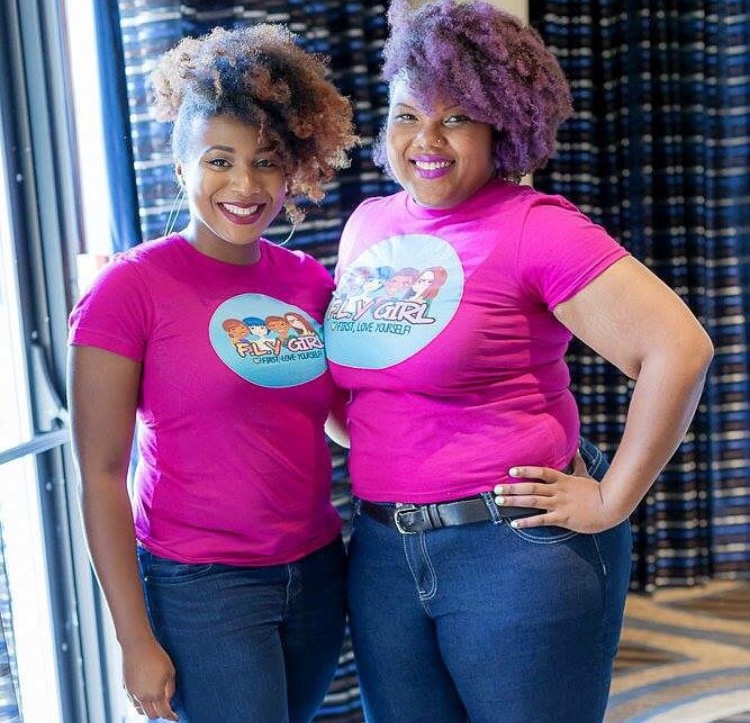
Blavity: What does a day at KIMBRITIVE look like?
KIMBRITIVE: KIMBRITIVE is a passion-filled and purpose-driven start-up organized by Brittany, who also organizes with Girls for Gender Equity, and Kimberly, who is a full time graduate student. With our varying schedules, we carved out Mondays and Fridays as our virtual “office days” to roll up our sleeves and check off all of the things on our to-do lists. I don’t know about you, but there is nothing greater (give or take a few things, of course!) than checking something off of your to-do-list! On our virtual office days, we “clock in” via Google hangouts and focus on everything from business operations (i.e. invoices, contracts, collaborations and budgets) to education and innovation tasks like creating trap-music inspired sexual education workshops or reading up on the latest trends in adolescent sexual health.
The culture of KIMBRITIVE is to take our wildest ideas and create innovative, relatable and educational workshops and content with the goal of normalizing healthy conversations about sexual health, reproductive justice and everything in between. In this creative process, we are constantly bouncing ideas off of each other in order to envision, create and implement. We always keep the 15 and 16-year old versions of ourselves in mind in order to ensure that our workshops and content are youth-centered, culturally relevant, engaging and energetic. We always start off our “shift” by checking in with each other because outside of our business partnership, we value and cherish the friendship/sisterhood that brought us together and keeps us committed to doing this kind of work.
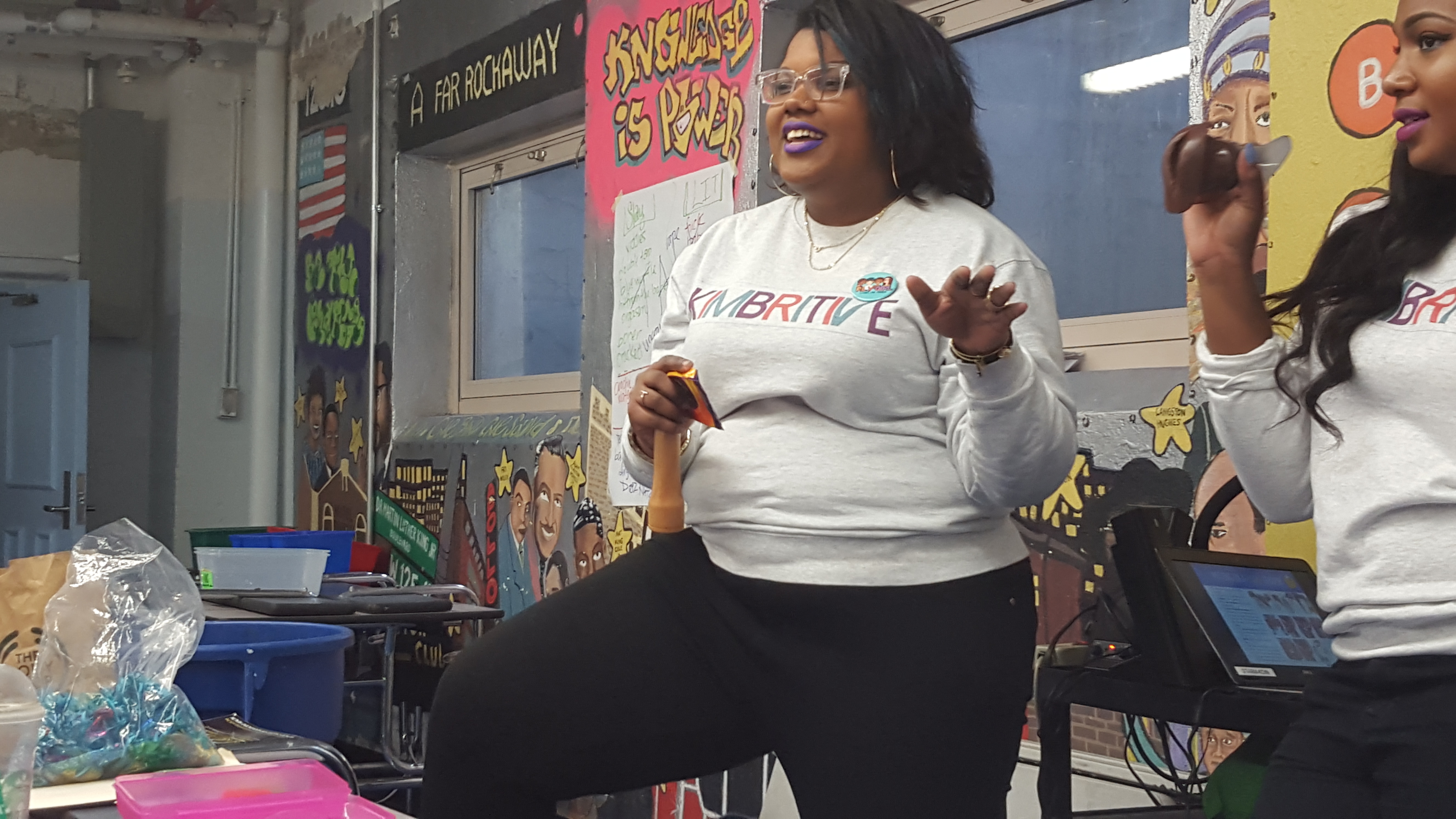
B: Brittany, you call yourself the “Protector of Black Girl Magic,” what exactly does that mean and how does KIMBRITIVE as a whole protect black girl magic?
Brittany: Black girl magic is a term often used to illustrate the universal awesomeness of black women and girls. Originally, coined by CaShawn Thompson, this term has been used everywhere from hashtags to crewnecks to coffee mugs. I see it used on social media, at least 5 times a day. I believe that while #BlackGirlMagic has been used awesomely to celebrate how beautiful, inspiring and powerful black women and girls are, we also must acknowledge how magical and important black women and girls are in light of violence, racism, sexism and homophobia. To protect #BlackGirlMagic means that we have a constant, unwavering commitment to showing up for black women and girls.
KIMBRITIVE is committed to protecting black girl magic as a whole by not just showing up for (and applauding) black girls and women when they win gold medals in the Olympics or get millions of dollars in scholarships, but also showing up for them when they are victims of police brutality and institutional racism. It requires showing up for trans black women and girls and gender non-conforming folks. It requires that we #SayHerName. It requires that we march in the streets for black women and girls, just like we do for black men and boys. It requires that we demand justice for #EveryBlackGirl in America, and beyond. It means unapologetically advocating for affordable, accessible, competent and stigma-free sexual and reproductive education and health care for low-income black women and girls who seek it. This includes abortion care. It requires believing black women and girls, always! At KIMBRITIVE we believe it is our duty to show up black girls as two-young black women. Because if not us, then who?
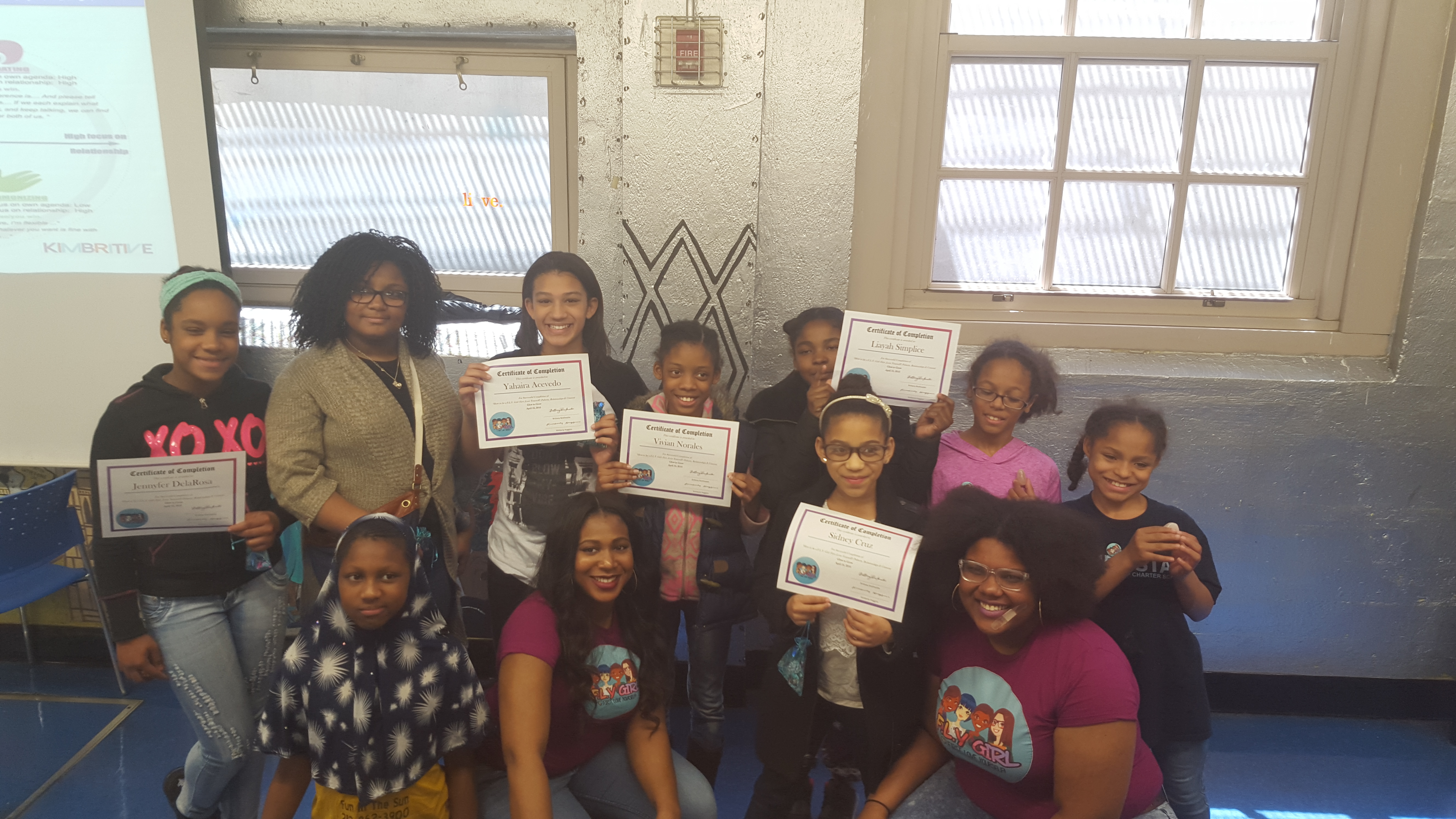
B: One of your workshops is called ” Standing Up in a Crooked Room: Techniques to Help Empower Young Black Women and Girls through Popular Culture.” What need did you seek to fill by creating this workshop? What is the core lesson that is taught?
KIMBRITIVE: Standing Up in a Crooked Room is based on the Crooked Room chapter from Dr. Melissa Harris Perry’s book “Sister Citizen: Shame, Stereotypes, and Black Women in America. Harris Perry says “When they confront race and gender stereotypes, black women are standing in a crooked room, and they have to figure out which way is up. Bombarded with warped images of their humanity, some black women tilt and bend themselves to fit the distortion….To understand why black women’s public actions and political strategies sometimes seem tilted in ways that accommodate the degrading stereotypes about them, it is important to appreciate the structural constraints that influence their behavior. It can be hard to stand up straight in a crooked room.” (pg. 62)
We created this workshop to seek justice in the lives of young black women and girls, by building capacity among adult-allies of all races. We start this dialogue with adult-allies about the ways in which adolescents, in particular young black women and girls, are bombarded with varying controlling images of sexual expression and violence via lyrics, media and images. These messages shape cultural expectations of sexuality and highly feminine gender expression and performance, which can be conflicting for young women: the “crooked” room. In addition, gender-based violence for young women of color takes many forms from street harassment, to unequal power in condom negotiation, to teen dating violence. We always encourage the adult allies that we work with to lean into the experiences of the young people they work with in order to come from a place of humility and understanding. We offer an exercise to help adults become better allies to youth, by providing them an opportunity to attempt to stand up in a crooked room, as young people do everyday.
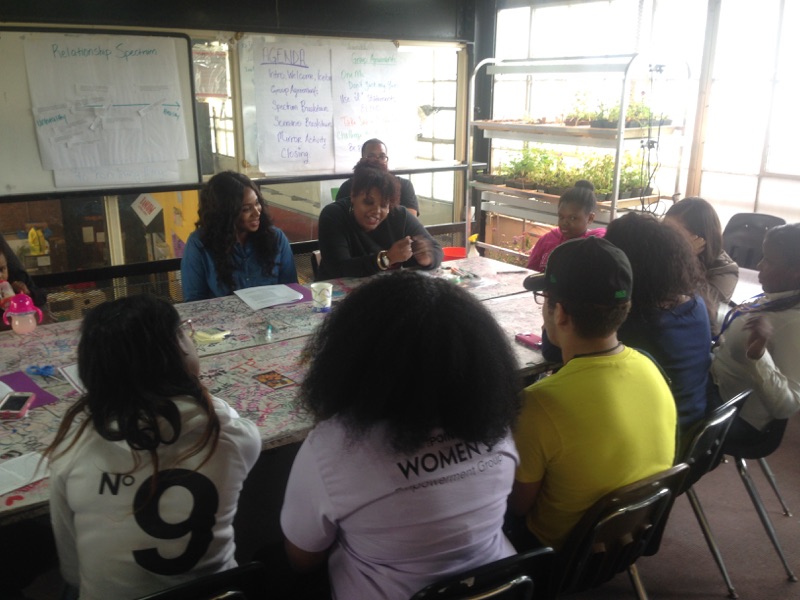
We ask adults to stand in young people’s shoes and attempt to both understand the ways in young people can interpret these messages positively and challenge these dominant messages by defining who they are and/or who they want to be in their own words.
In our experience as adolescent health educators and youth workers, we understand the pivotal role that popular culture plays in influencing these behaviors and in turn use it as a political tool to help young women of color examine, deconstruct, negotiate and re-evaluate their relationships with themselves, others and the world around them.
It is our goal that through redefinition, reclaiming and resisting practices via media-literacy and its translation for public health, we can help adult-allies see young black women and girls as experts on their own lives and advance our mission for self-determined lives free of violence for all.
B: Do either of you have any memorable instances from your outreach where you could feel the impact you made in that moment? If so, can you describe that situation?
Brittany: I think a memorable moment for me was when we did a puberty workshop with Middle Schoolers in Harlem, who were part of the Glow to Grow Mentoring program. Part of the workshop, includes conversations about “getting your first period.” During the workshop, Kim and I demonstrated how to use a pad and tampon, and all of the girls left their seats and crowded around us to get a better look. They had so many questions, and we were so excited to attempt to answer them all. While it was not out of the ordinary for Kim and I to facilitate this kind of conversation, it was heart-warming to know that we were doing it with 9 year-olds. Even though I am in my 20s, many of my friends are still uncomfortable about talking about menstruation. We still live in a society that still stigmatizes and shames people who menstruate. To be able to create safe(r) spaces where we can provide honest information to curious young black girls is an amazing feeling. I think Kim and I were smiling the whole day after that workshop.
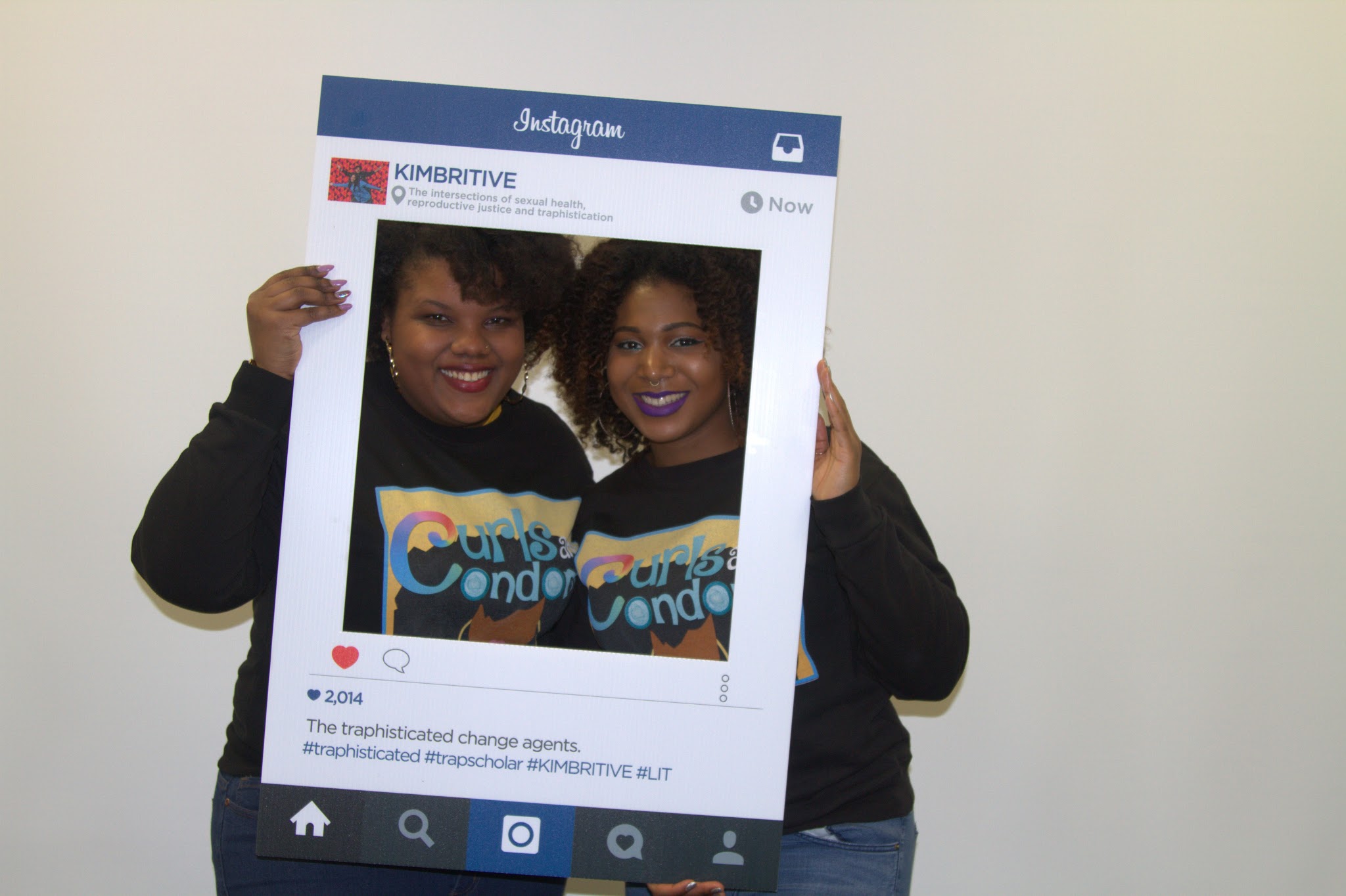
Kimberly: For me, it was definitely the day we facilitated “How to Be a F.L.Y. Girl: First, Love Yourself!” for the NYC Healthy Teen Relationship Conference. We both took a day off from our 9-5s in order to facilitate that workshop. This workshop was created for young women but, both boys and girls showed up! It was truly remarkable to see both young men and women of color engaging in conversations about what “real” and “respectable” love is with others and themselves. After our workshop, we noticed a few people throughout the day wearing the “How to Be a F.L.Y. Girl: First, Love Yourself!” pins that weren’t in our workshop earlier. It shocked me because I instantly wondered, “Where did they get it from?” I asked one of the young women where they got it from and she went on to describe a workshop that her friend went to in Syracuse, NY (unbeknownst to her, it was the workshop we facilitated for the Sisters Empowering Sisters Conference!) who later gave them the pin as a gift. It was an amazing feeling to see your work being shared and felt by others, even when you’re not in the room. It made me feel validated and confirmed that our work is important and necessary.
B: How can our community support KIMBRITIVE and get involved?
KIMBRITIVE: Work with us and invite us to your events! We love to connect, build and get in formation with other like-minded individuals and organizations who share the mission of normalizing healthy conversations about sexuality, relationships, and reproductive justice while empowering and celebrating the voices and experiences of young people and women of color.
Learn more about KIMBRITIVE, like them on Facebook and follow them on Instagram.

